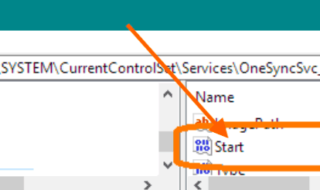Call centers are often the first line of contact between a company and its customers. As such, it’s essential to have a well-managed call center that can effectively handle customer inquiries and resolve complaints in an efficient and timely manner. But how do you achieve this? This article will explore the most effective tips from experienced call center managers on how to effectively manage a call center and maximize customer satisfaction. We will look at best practices for hiring and training agents, creating effective scripts, managing queues, and more. Ready to learn more? Let’s dive in!

Contents
The Pros and Cons of a Call Center
There are many pros and cons to operating a call center. The pros include having a central location for customer service, being able to handle a large volume of calls, and the ability to route calls to the appropriate department. The cons include the cost of operating the call center, training employees, and managing employee turnover. For starters, call center management typically requires a larger budget than other customer service operations. This is due to the cost of setting up and maintaining the equipment, as well as hiring and training additional staff. Additionally, employees must have strong communication skills, a good understanding of customer service, and the ability to handle difficult situations with professionalism. Finally, managing employee turnover can be difficult when dealing with a high volume of calls coming in each day.
How to manage a call center
For starters, it is important to set up some basic ground rules and expectations for your team. This includes things like setting a schedule and break times, as well as outlining what is expected of each member in terms of performance. Additionally, you will need to establish a system for tracking call center metrics so that you can identify areas that need improvement.
Once you have the basics in place, you can start thinking about ways to optimize your call center’s performance. This may involve implementing new technologies or processes or simply providing additional training for your team members. Whatever the case may be, it is important to constantly be looking for ways to improve efficiency and quality levels.
What type of training is needed for a call center?
For smaller call centers, it may be enough to provide basic customer service training. This can cover topics like how to handle angry customers, how to upsell products or services, and how to take payments over the phone. Larger call centers may require more specialized training, such as product knowledge or technical support.
It’s also important to consider the types of calls that are received. If most calls are simple customer service inquiries, then agents will need to be trained on how to handle those types of calls. If there are a lot of technical support calls, then agents will need to be trained on troubleshooting procedures. And if there are sales calls, then agents will need to be trained on closing techniques and objection handling.
The average length of each call should also be taken into consideration when determining training needs. If most calls last only a few minutes, then agents won’t need as much time to learn everything they need to know. But if calls tend to last longer, then more comprehensive training may be necessary.
How to motivate employees in a call center
It can be difficult to motivate employees in a call center. The work is often repetitive and calls are often back-to-back with little time in between. This can make it hard for employees to feel appreciated and valued. However, there are some things that managers can do to help motivate their employees.
1. Recognize good performance – When an employee does a good job, be sure to recognize it. A simple “good job” or “thank you” can go a long way in making an employee feel appreciated.
2. Set goals – Help employees set goals for themselves and their work. Having something to strive for can help motivate them to do their best.
3. Offer incentives – Incentives are a great way to motivate employees. Offering rewards for meeting goals or reaching certain targets can encourage employees to work harder.
4. Provide feedback – regular feedback is important for helping employees stay on track and improve their performance. Be sure to give both positive and constructive feedback so that employees know what they’re doing well and what areas need improvement.

Call centers are the engine that drives customer service and satisfaction. Without proper management, these centers can quickly become inefficient or unproductive. By following the advice of experts in this field and utilizing best practices, you can ensure your call center is running as smoothly and profitably as possible. With good training, processes, technology, and data analysis in place to support your team’s efforts; you will have a successful call center operation that is both beneficial for customers and profitable for your business.



